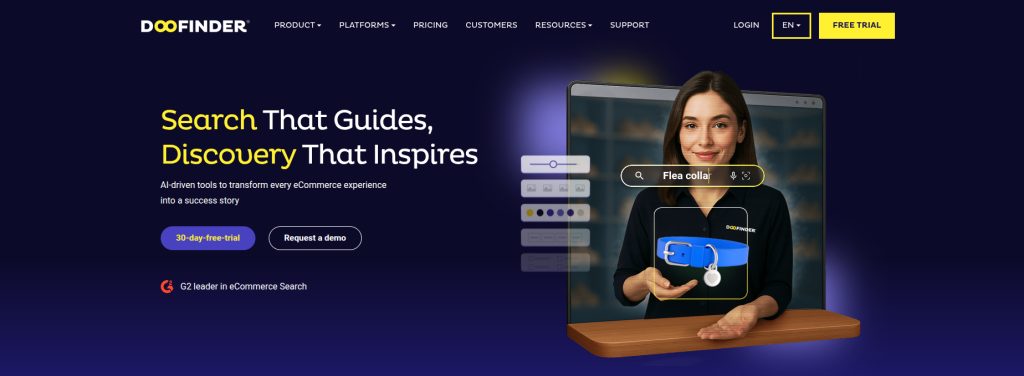General search engines are powerful, but they often give you far more information than you actually need. You might be looking for a specific product, a medical study, or the best deal on a flight, yet you find yourself digging through ads, unrelated results, and pages that don’t quite match your intent.
Specialty search engines solve this problem by narrowing the scope. Instead of scanning the entire web, they focus on a clearly defined niche — such as eCommerce, academic research, travel, or healthcare — and return results that are faster, more accurate, and highly relevant.
In this article, we’ll explore what makes these search engines different, how vertical search fits into the picture, the benefits they offer to both users and businesses, and the types you’re most likely to encounter.
What Are Specialty Search Engines?
A specialized search engine (sometimes called a niche search engine) is built to find information within a specific category, industry, or content type — rather than indexing the entire web like Google or Bing.
By working from a curated dataset, these engines eliminate irrelevant noise and make it easier for users to find exactly what they need.
Example: If you search “best running shoes” on Google, you’ll see pages of mixed results — news articles, blog posts, ads, videos, and store listings. But an eCommerce-focused specialized search engine could instantly show you in-stock, top-rated running shoes, with filters for size, color, brand, and customer reviews — helping you buy in just a few clicks.
As online data continues to grow, these targeted tools have become essential for helping both consumers and businesses save time, discover relevant options faster, and make better decisions.
Doofinder is an AI-powered site search solution that acts as a specialized search engine for your own website. It delivers lightning-fast, relevant results tailored to your product catalog, helping visitors find exactly what they need — and boosting conversions in the process.
What Is Vertical Search?
A vertical search engine is a type of specialized search engine that focuses on a single industry or market segment — often referred to as a “vertical.” Rather than scanning the entire internet, it indexes and searches only within its chosen domain, such as travel, real estate, healthcare, or eCommerce.
For example, Kayak searches flights, hotels, and car rentals; Zillow searches real estate listings; and Doofinder searches exclusively within an online store’s product catalog.
Because they operate in a well-defined space, vertical search engines can offer highly contextual results, industry-specific filters, and advanced search features that general-purpose search engines simply can’t match.
How Vertical Search Differs from Specialized Search
Vertical search is actually a subset of specialized search — but the terms aren’t interchangeable.
- Specialized Search Engine – Focuses on a specific type of content, topic, or audience (e.g., academic research, multimedia files, recipes).
- Vertical Search Engine – Focuses on a single industry or market vertical and is tailored to its unique data, terminology, and user needs.
In short, all vertical search engines are specialized, but not all specialized search engines are tied to one industry. For example, Shutterstock Search is specialized (it only indexes multimedia assets) but isn’t limited to a specific market vertical like real estate or travel.
Benefits of Specialty Search Engines
Specialized search engines provide advantages that go beyond what general search engines can offer. Because they work within a very relevant dataset, results are faster, more accurate, and often richer in detail.
Benefits for Users:
- Higher relevance – Results match the searcher’s intent with minimal unrelated content.
- Time savings – Quickly locate information without endless scrolling.
- Better accuracy – Metadata, filters, and categorization make searches more precise.
Benefits for Businesses:
- Improved conversion rates – Shoppers find the right product or information faster.
- Brand authority – A tailored search experience reinforces expertise.
- Data insights – Search queries reveal valuable patterns in user behavior.
From online retail to academia, the precision of specialized search engines creates a smoother user journey — a critical advantage in today’s competitive markets.
What Types of Specialized Search Engines Exist?
Specialized search engines can be classified based on content type, audience, or industry focus. Below are the most common types, along with examples:
eCommerce and Product Search Engines
Built specifically for online shopping, these engines help customers find products faster using advanced filters, synonyms, and personalization. Doofinder, for instance, integrates into online stores to deliver AI-powered product search, increasing both user satisfaction and conversion rates.

Academic and Research Search Engines
These search tools index scholarly literature such as research papers, conference proceedings, and peer-reviewed journals. For example, Google Scholar allows researchers to quickly locate academic content, track citations, and explore related works — all while filtering out irrelevant, non-academic results.

Multimedia Search Engines
Focused on visual and audio content, these engines allow users to search and filter by resolution, style, format, and licensing. Shutterstock Search is a prime example, enabling creatives to find high-quality stock images, videos, and music with precision.

Travel and Hospitality Search Engines
These platforms aggregate data from airlines, hotels, and rental services to simplify travel planning. Skyscanner searches across multiple providers, allowing travelers to compare prices, availability, and itineraries in real time.

Job and Career Search Engines
Designed to connect job seekers with opportunities, these engines aggregate listings from multiple sources and allow filtering by salary, role type, and location. Indeed is one of the largest, helping millions of users match with relevant employers.

Medical and Health Search Engines
Built for healthcare professionals, researchers, and patients, these engines index trusted medical literature and clinical data. PubMed offers access to millions of citations and abstracts from reputable biomedical sources like MEDLINE, ensuring results are credible and accurate.
Conclusion – The Power of Specialized Search Engines
In a world where online information grows by the day, specialized search engines cut through the noise to deliver exactly what users need. Whether it’s a researcher looking for peer-reviewed studies, a traveler comparing flights, or a shopper browsing an online store, these niche tools provide speed, relevance, and a better overall experience.
For businesses, adopting a specialized search solution can mean the difference between a frustrated visitor leaving and a satisfied customer converting. Solutions like Doofinder show how AI-powered, vertical-specific search can transform site usability and boost revenue — without relying solely on generic search platforms.If you want your users to find exactly what they’re looking for, it might be time to think less about searching everywhere and more about searching smarter.
Discover the difference of smarter search, try Doofinder free for 30 days and see how it transforms your store.
Frequently Asked Questions About Specialized Search
Google indexes the entire web, while a specialized search engine focuses on a specific niche, industry, or content type, delivering more precise results for a defined audience.
Not really. All vertical search engines are specialized, but “vertical” refers to a specific industry or market (like travel or eCommerce), while “specialized” can also apply to content types, such as academic research or multimedia.
A specialized search engine helps customers find what they want faster and more accurately, boosting engagement and conversions. Doofinder takes it further with AI-powered intent recognition, personalized recommendations, and insights that turn search into sales.
Yes. Many modern solutions, like Doofinder, leverage AI to improve relevance, learn from user behavior, and deliver personalized results in real time.
Yes — examples include Google Scholar for academic content or PubMed for medical literature. However, advanced business-focused solutions often come as paid services with more features and customization.










